Search Definitions
Browse Content (p. 179)
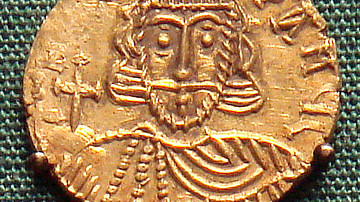
Definition
Leo III
Leo III was emperor of the Byzantine Empire from 717 to 741 CE. He founded the Isaurian dynasty which ruled until 802 CE. The emperor was a talented administrator, and he revamped the empire's political apparatus and legal code. Leo's reign...

Definition
Dolmen
A dolmen is a megalithic structure typically formed from a large horizontal stone slab resting on two or more upright slabs. The oldest European examples are found in Brittany, northern France, and date to the 5th millennium BCE. Dolmens...
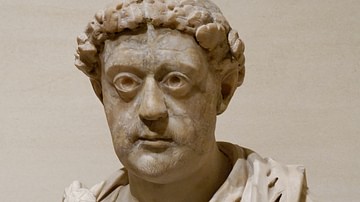
Definition
Leo I
Leo I was emperor of the Byzantine Empire from 457 to 474 CE. He was also known as “Leo the Butcher” (Makelles) for the assassination of his patron and rival Aspar. Although his reign was lacklustre and included a serious defeat to the Vandals...
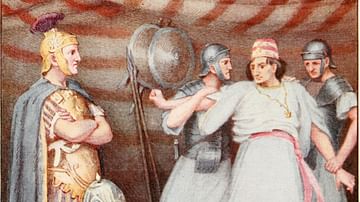
Definition
Jugurtha
Jugurtha (r. 118-105 BCE) was King of Numidia in North Africa and grandson of the first Numidian king Masinissa (r. c. 202-148 BCE). He was the illegitimate son of Mastanabal, Masinissa's youngest son, and was the least likely of Masinissa's...

Definition
Cniva
Cniva (also given as Kniva, c. 250 CE to possibly 270 CE) was the king of the Goths who defeated Emperor Decius (249-251 CE) at the Battle of Abritus in 251 CE. Little is known of him other than his campaign in 251 CE, in which he successfully...

Definition
Saint Cyril
Saint Cyril (aka Kyrillos and Constantine the Philosopher, d. 867 CE) was a Byzantine linguist, teacher, scholar and missionary who famously preached Christianity to the Slavs in Moravia with his brother Methodius during the 9th century CE...
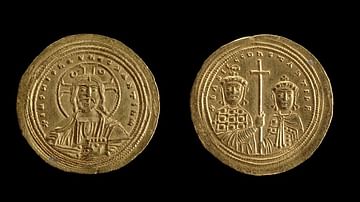
Definition
Byzantine Coinage
The coinage of the Byzantine Empire continued that of its more ancient predecessors and functioned as a convenient method of payment for goods and services, especially to soldiers and officials, and as a means for people to pay their taxes...
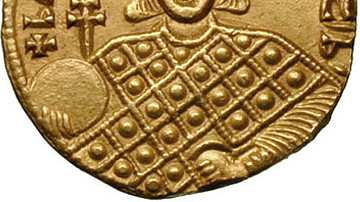
Definition
Basil I
Basil I was emperor of the Byzantine Empire from 867 to 886 CE and he founded the "Macedonian" dynasty which lasted for over 200 years. Basil was an Armenian from a humble background who had risen to become the second most powerful man in...

Definition
Loki
Loki is a god in Norse mythology who is often simply described as the 'trickster' god for his love of playing pranks on both his fellow gods and his or their opponents. Sworn brother of Odin and often the one to dig the other gods out of...

Definition
Michael III
Michael III, also known as “Michael the Drunkard” by his detractors, was emperor of the Byzantine Empire from 842 to 867 CE. Never quite escaping the shadow of his mother Theodora, who ruled as regent in his name until c. 855 CE, or his uncle...